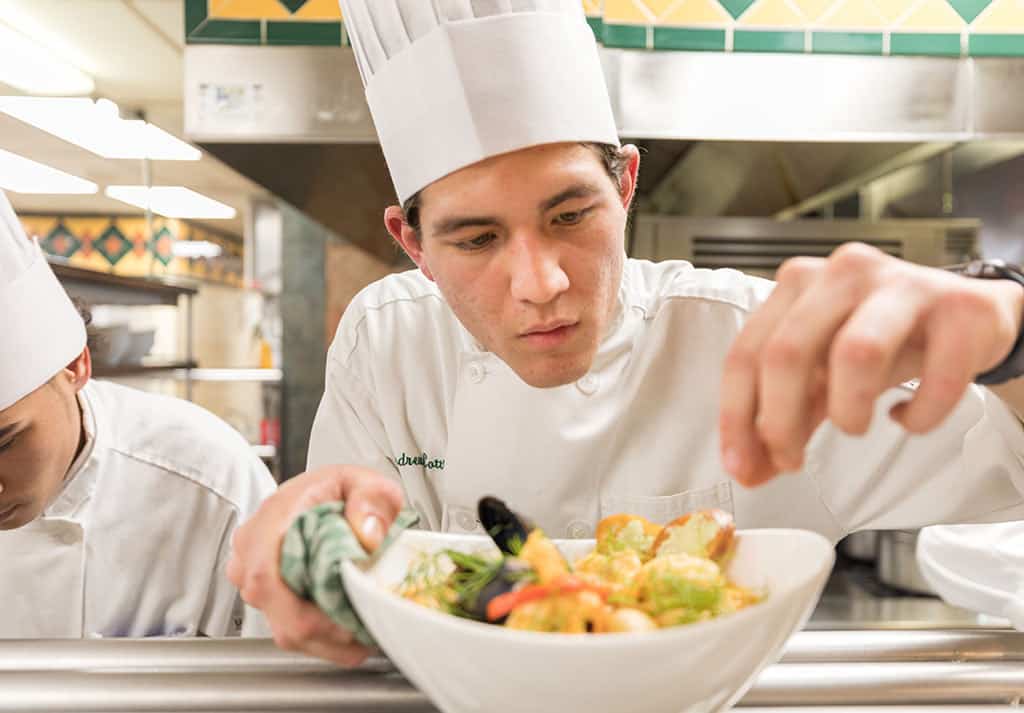JAKARTA, autonomicmaterials.com – Culinary education is the gateway to a rewarding career in the food arts, offering aspiring chefs the skills, techniques, and knowledge needed to thrive in the culinary world. Whether you dream of working in a high-end restaurant, starting your own food business, or exploring the vast field of food science, a solid culinary education can set you on the right path. In this article, we’ll explore the journey of culinary education, share real tales from industry professionals, and provide essential tips for those looking to embark on this exciting career.
Why Pursue Culinary Education?

1. Skill Development
Culinary education provides hands-on training in various cooking techniques, food preparation, and presentation skills. Learning from experienced chefs and instructors helps you build a strong foundation in the culinary arts.
2. Understanding Food Science
A comprehensive culinary program often includes courses in food science, nutrition, and food safety. This knowledge is crucial for creating delicious and safe dishes, as well as for understanding the properties of different ingredients.
3. Networking Opportunities
Attending a culinary school allows you to connect with industry professionals, fellow students, and potential employers. These connections can be invaluable when seeking internships or job opportunities after graduation.
Choosing the Right Culinary School
1. Accreditation and Reputation
Research schools that are accredited and have a good reputation in the culinary community. Look for programs that offer a well-rounded curriculum and experienced faculty.
2. Specialization Options
Consider what area of culinary arts interests you most—be it baking and pastry, savory cooking, or culinary management. Some schools offer specialized programs that cater to these interests.
3. Hands-On Experience
Look for schools that provide ample hands-on training in their kitchens. Practical experience is essential for building confidence and honing your skills.
Real Tales from Culinary Professionals
Chef Maria: The Journey from Home Cook to Culinary School Graduate
Chef Maria always had a passion for cooking. After years of experimenting in her home kitchen, she decided to pursue culinary education to take her skills to the next level. Enrolling in a reputable culinary school, she learned everything from knife skills to advanced cooking techniques. Today, she runs her own successful catering business, crediting her culinary education with providing her the confidence and knowledge to succeed.
Chef James: The Importance of Networking
Chef James attended culinary school with the dream of becoming a head chef in a fine dining restaurant. He took full advantage of networking opportunities during his studies, participating in internships and industry events. These connections led him to a position at a prestigious restaurant, where he climbed the ranks to become head chef. James emphasizes the importance of building relationships in the culinary world, as they can open doors to incredible opportunities.
Tips for Aspiring Chefs
1. Get Hands-On Experience Early
Consider working in a restaurant or food-related job while pursuing your culinary education. This experience will help you understand the fast-paced environment of the kitchen and apply what you learn in school.
2. Stay Open to Feedback
Culinary school can be intense, and feedback from instructors is crucial for growth. Embrace constructive criticism and use it to improve your skills.
3. Experiment and Be Creative
Don’t be afraid to experiment with flavors and techniques. The culinary world thrives on creativity, so take the time to explore your culinary style and develop your unique approach to cooking.
4. Keep Learning
Culinary education doesn’t end after graduation. Stay updated on industry trends, new techniques, and culinary innovations through workshops, online courses, and culinary events.
Conclusion
Culinary education is a vital step for anyone aspiring to make a mark in the food arts. With the right training, dedication, and passion, you can turn your culinary dreams into reality. Whether you’re inspired by the stories of successful chefs or motivated by your own love for cooking, pursuing a culinary education can lead to a fulfilling and exciting career. Embrace the journey, learn from every experience, and let your culinary passion shine!
Sharpen Your Skills: Delve into Our Expertise on Food
Check Out Our Latest Piece on Stuffed Acorn Squash: A Seasonal Favorite with Wild Rice!




